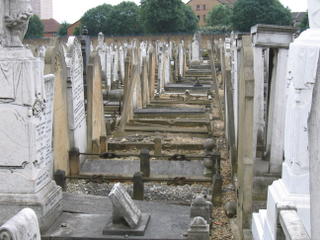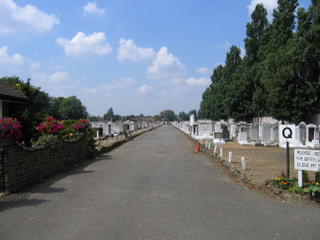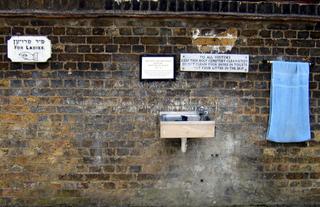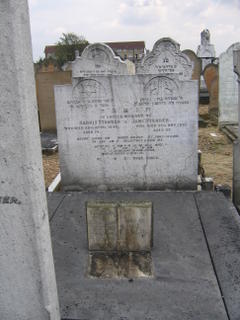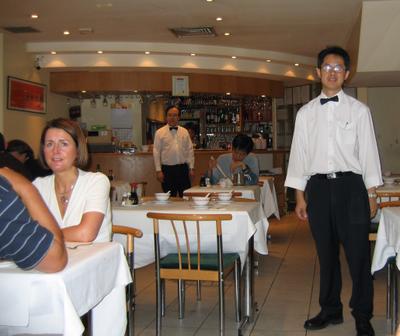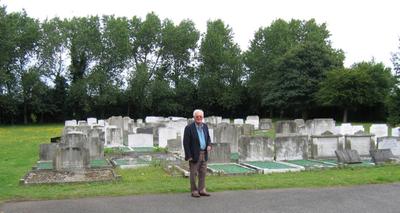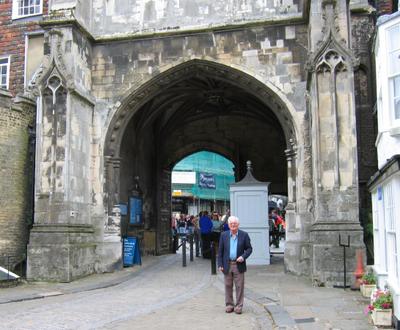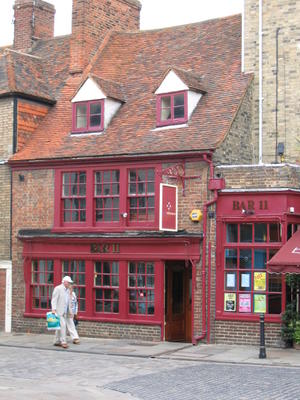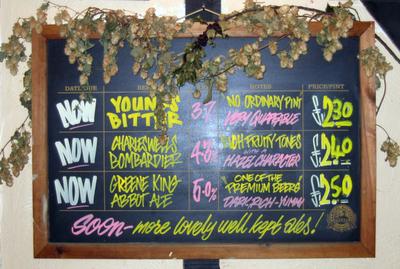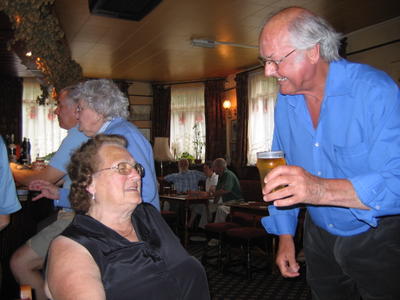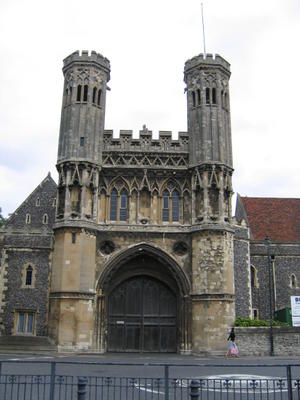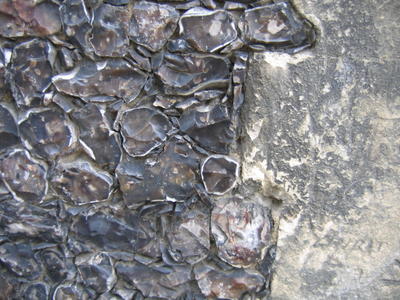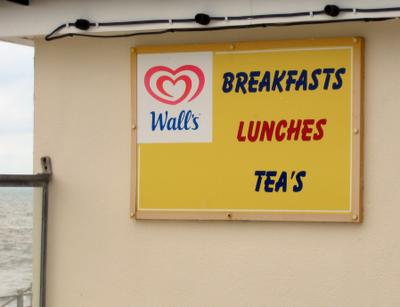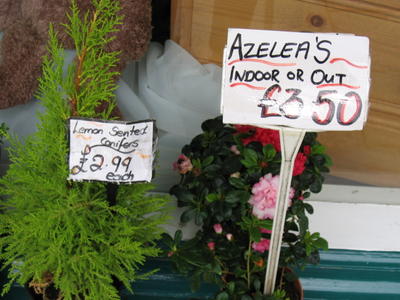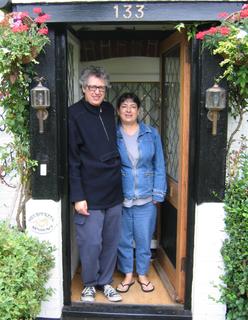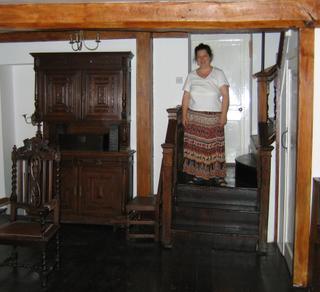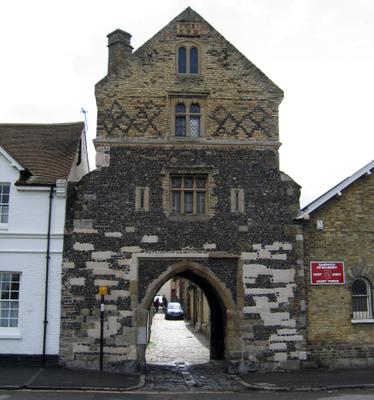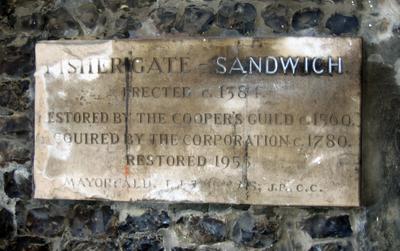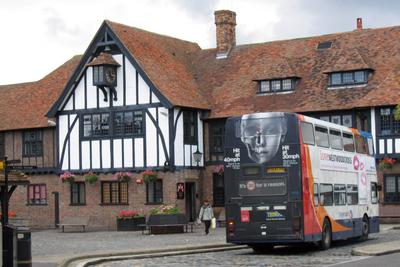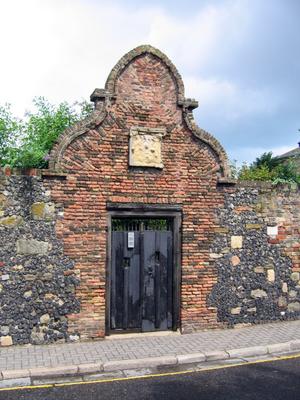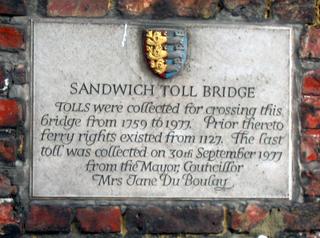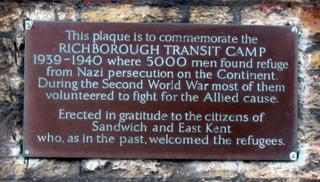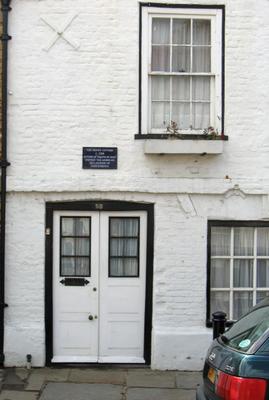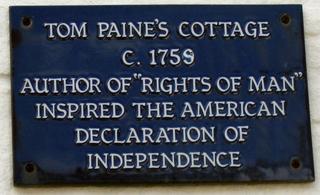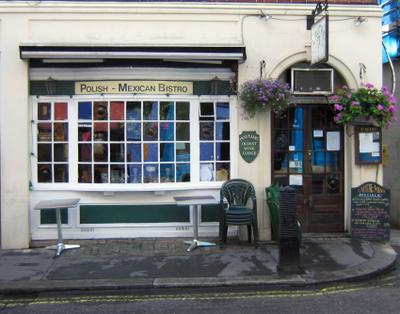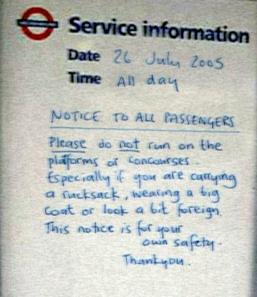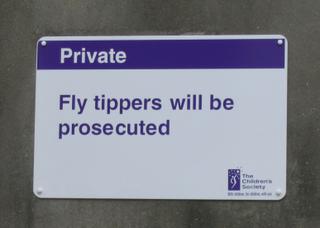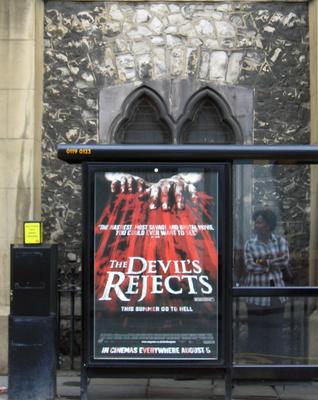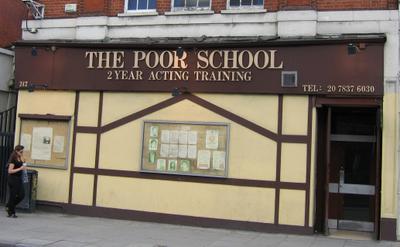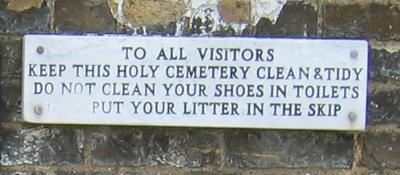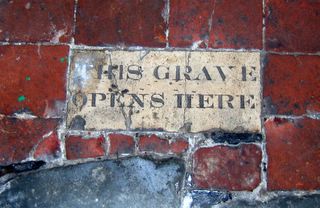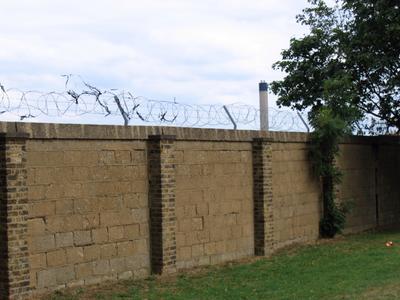Here's what you
don't want to see part-way through a Rolling Stones concert: An empty stage being minutely examined by three bomb-sniffing dogs and their policeman handlers. But I get ahead of myself...
Turns out there was no activity bus for Darling Child on Thursday (I was too tired to write this up yesterday) because every school bus in town was being used to ferry people from outlying parking lots to Scott Stadium at UVa. We parked at a 500-space garage about a mile away, which by 5:45 was almost full (showtime was 7pm), and joined a couple dozen other clever people for takeout at Foods of All Nations, a local gourmet supermarket. (BTW, you haven't lived till you've had their chocolate-dipped almond macaroons.)
At 6:30 or so we joined the throngs heading to Scott Stadium, and at 7:00, when opening act Trey Anastasio began, we were shuffling up a ramp toward our seats at the bottom tier of the nosebleed section. (I joked that we'd be singing "Nearer My God to Thee.") I'm no Phish fan and Anastasio's band left me cold. Evidently most of the ticketholders felt similarly, as the stadium was maybe 1/3 full. Anastasio's best number was the Beatles' "I Am the Walrus," but even that lacked much vitality. Sure wish we'd had the Black-Eyed Peas, who are opening for the Stones elsewhere. The band was off the stage by 7:30, to deservedly tepid applause.
At a few minutes before 9:00, by which time the stadium was full, the Stones came on with a bang--literally--with "Start It Up." A five-story (!) structure at the back of the stage shot off flames and fireworks from both ends of its swooping wings (the jumbo video screen was in the center). I could feel the heat from 120+ yards away. Yowzah!
Next came "Only Rock 'n' Roll," then "Shattered," "Ruby Tuesday," and a song from their new album. Interestingly, the videography for the latter was in black & white, while the rest were in color, so the new song looked "old." (I might have missed a couple songs in there.) Then Jagger got out an acoustic guitar and harmonica and said, "We don't get to play this one very often," and brought the house down with "Sweet Virginia." The crowd, including Your Humble Correspondent, all sang along, and went wild when the video screen showed a young woman in the audience with a "Sweet Virginia is for Stones Lovers" t-shirt. Much to my surprise, Darling Spouse--he of the 700+ record album collection & encyclopedic knowledge of popular music--had never heard "Sweet Virginia" before & was astonished that practically everyone there (especially YHC) knew it. It just goes to show: You think you know someone and then...
It hardly seems possible, but Jagger then brought the house down even more with a tribute to Ray Charles, complete with b&w pix of Charles on the Jumbotron, singing "Nighttime Is the Right Time" with the female backup singer. Besides her amazing voice, she provided a good deal of visual excitement, as her jiggling
embonpoint threatened to overflow the cups of her low-cut vest. But the levees held and there was no wardrobe malfunction.
After that, Jagger started introducing the band and was just turning to Keith Richards when he abruptly left the stage, then a couple of minutes later reappeared to say that he was very sorry, but there was a"technical problem" not of their making & they had to stop the show. He stressed that this was not planned and they'd be back in about 10 minutes. Next thing we knew, the stadium lights were all on, the Jumbotron was off, and the stage (including the few hundred seats in the 5-story structure) & first 20 rows of the field seats were cleared out. Hmm, that's weird, I thought. Weirder still was when I saw the policemen and dogs. I and some other bystanders figured (correctly, as we learned from the news next day) that someone had phoned in a bomb threat. Ugh. I uneasily recalled that a friend had joked that if a bomb went off in Scott Stadium that night, half the teenagers in Charlottesville would be orphaned. Suddenly it didn't seem so funny, especially with my own teenager right there.
The "10 minutes" stretched to an hour, towards the end of which the audience passed the time by doing multiple stadium waves. All those pale arms (I think there were more African Americans on stage--5?--than in the stands) looked like coral fronds in an undersea current. Finally, the Stones came back at 10:30, appropriately with "Miss You," then launched into "Honky Tonk Women," which brought on the rain that had been threatening for the past two days, though fortunately not very heavily. The humidity had been something like 110%--we were sweating just sitting still, and that was up where there was a breeze. Earlier Jagger had observed that it was "a sultry Southern night." I'll say! (We're still desperately awaiting fall weather. Please send some this way!)
To cut a long story short, the Stones rocked out with many of their golden oldies: "Midnight Rambler" (
great visuals in sync with the music); "Sympathy for the Devil," which had the audience singing "woo woo" long before Jagger chimed in; "Get Off of My Cloud," "Paint It Black" (Jagger seemed off-key on that one). There were one or two new tunes in there, then a grand finale of "Jumpin' Jack Flash." The encores were "You Can't Always Get What You Want," with the female singer's powerful operatic soprano, and "Satisfaction." By then it was after midnight and despite the late hour, there was another spectacular jet of flames followed by a bunch of loud, bright white fireworks. I'm sure they were appreciated by every dog, cat and baby in the neighborhood.
We didn't get home till 1:20 a.m. (we'd originally estimated we'd be back by 11:30. Ha!) and not 10 minutes later the rain came down in torrents, which didn't let up till this afternoon. I imagined Jagger looking in his hotel-room mirror, saying "Après moi le déluge."
In conclusion: You can make all the jokes you want about "geezer rock," but the Stones still have It. And Charlie Watts makes every other drummer look as though he's working too hard. Also, our drought is officially over.
